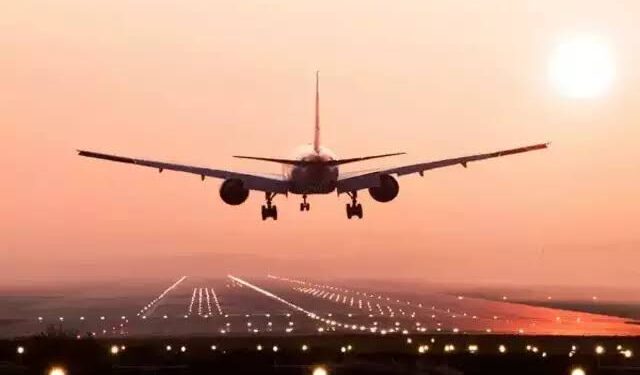Lagatar24 Desk
New Delhi: Amid heightened regional tensions following the Pahalgam terror attack, leading international airlines including Air France and Lufthansa have suspended the use of Pakistani airspace to ensure passenger and crew safety. The shift is part of a broader trend of global carriers opting for longer, fuel-intensive routes to bypass what is now viewed as a high-risk corridor.
Airlines issue statements, cite safety concerns
In separate statements, Air France and Lufthansa confirmed their decisions. Air France said it would suspend overflights of Pakistan “until further notice” due to “recent tensions between India and Pakistan.” Lufthansa echoed this position, noting that while the decision would increase flight durations on Asian routes, safety remains the top priority. Both airlines are closely monitoring the geopolitical situation.
Flight data reveals shift in global flight paths
Flight tracking platforms have recorded multiple international airlines—such as British Airways, Swiss International Air Lines, and Emirates—adjusting their routes to avoid Pakistan, often rerouting over Central Asia or the Arabian Sea. These detours significantly increase fuel consumption and operational costs.
Financial setback for Pakistan
The exodus of international carriers from its airspace is expected to impact Pakistan’s aviation revenue. Overflight charges paid by foreign carriers serve as a major income source for Pakistan’s Civil Aviation Authority. A continued avoidance of Pakistani airspace by international airlines could translate into millions of dollars in monthly losses.
Indian carriers adjust routes and cancel flights
In response to Pakistan’s airspace closure for Indian aircraft, Indian carriers like Air India and IndiGo have announced route changes. Air India said its long-haul flights to North America, the UK, Europe, and the Middle East are now taking extended routes, leading to higher fuel costs and longer travel times.
IndiGo has cancelled services to Almaty and Tashkent, citing that these routes now exceed the operational range of its aircraft due to detours. Other flights are being rescheduled to accommodate the longer flying distances necessitated by the airspace restriction.
Impact on passengers and aviation operations
While no specific timeframe has been given for the resumption of normal routes, both international and Indian carriers have urged passengers to anticipate potential delays. Airlines are also reviewing aircraft rotations and crew scheduling to minimise disruption.







